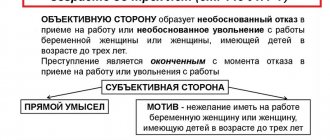1. Administrative punishment for committing an administrative offense is imposed within the limits established by the law providing for liability for this administrative offense, in accordance with this Code.
2. When imposing an administrative penalty on an individual, the nature of the administrative offense committed by him, the identity of the perpetrator, his financial status, circumstances mitigating administrative responsibility, and circumstances aggravating administrative responsibility are taken into account.
2.1. When imposing an administrative penalty for committing administrative offenses in the field of legislation on narcotic drugs, psychotropic substances and their precursors to a person recognized as a drug addict or consuming narcotic drugs or psychotropic substances without a doctor’s prescription or new potentially dangerous psychoactive substances, the judge may impose a duty on such person undergo diagnostics, preventive measures, treatment for drug addiction and (or) medical and (or) social rehabilitation in connection with the use of narcotic drugs or psychotropic substances without a doctor’s prescription or new potentially dangerous psychoactive substances. Control over the fulfillment of such duties is carried out by authorized federal executive authorities in the manner established by the Government of the Russian Federation.
2.2. In the presence of exceptional circumstances related to the nature of the administrative offense committed and its consequences, the personality and property status of the individual brought to administrative responsibility, the judge, body, official considering cases of administrative offenses or complaints, protests against decisions and (or) decisions on cases of administrative offenses may impose punishment in the form of an administrative fine in the amount less than the minimum amount of the administrative fine provided for by the relevant article or part of the article of Section II of this Code, if the minimum amount of the administrative fine for citizens is at least ten thousand rubles, and for officials - not less than fifty thousand rubles, or an administrative fine provided for by the relevant article or part of the article of the law of a constituent entity of the Russian Federation on administrative offenses, if the minimum amount of the administrative fine for citizens is not less than four thousand rubles, and for officials - not less than forty thousand rubles.
2.3. When imposing an administrative penalty in accordance with Part 2.2 of this article, the amount of the administrative fine cannot be less than half the minimum amount of the administrative fine provided for citizens or officials by the corresponding article or part of an article of Section II of this Code or the corresponding article or part of an article of the law of a subject of the Russian Federation on administrative offenses.
3. When imposing an administrative penalty on a legal entity, the nature of the administrative offense committed by it, the property and financial position of the legal entity, circumstances mitigating administrative liability, and circumstances aggravating administrative liability are taken into account.
3.1. In the cases provided for in Part 3 of Article 28.6 of this Code, administrative punishment is imposed in the form of an administrative fine. In this case, the amount of the imposed administrative fine must be the smallest within the sanction of the applicable article or part of the article of Section II of this Code, and in cases where the sanction of the applied article or part of the article of Section II of this Code provides for administrative punishment in the form of deprivation of the right to drive vehicles or administrative arrest and there is no provision for administrative punishment in the form of an administrative fine, administrative punishment is imposed in the form of an administrative fine in the amount of five thousand rubles.
3.2. In the presence of exceptional circumstances related to the nature of the administrative offense committed and its consequences, the property and financial status of the legal entity brought to administrative responsibility, the judge, body, official considering cases of administrative offenses or complaints, protests against decisions and (or) decisions on cases of administrative offenses, may impose punishment in the form of an administrative fine in an amount less than the minimum amount of the administrative fine provided for by the relevant article or part of an article of Section II of this Code or the corresponding article or part of an article of the law of a subject of the Russian Federation on administrative offenses, if the minimum amount The administrative fine for legal entities is at least one hundred thousand rubles.
3.3. When imposing an administrative penalty in accordance with Part 3.2 of this article, the amount of the administrative fine cannot be less than half the minimum amount of the administrative fine provided for legal entities by the corresponding article or part of an article of Section II of this Code or the corresponding article or part of an article of the law of a subject of the Russian Federation on administrative offenses .
3.4. In the cases provided for by Part 4 of Article 28.6 of this Code, an administrative penalty in the form of an administrative fine is imposed in the amount of one third of the minimum amount of the administrative fine provided for by Parts 2, 4 and 6 of Article 14.5 of this Code.
3.5. Administrative punishment in the form of a warning is imposed in cases where it is provided for by the relevant article of Section II of this Code or the law of a constituent entity of the Russian Federation on administrative offenses for first-time administrative offenses in the absence of causing harm or threat of harm to the life and health of people, objects of flora and fauna , the environment, cultural heritage sites (historical and cultural monuments) of the peoples of the Russian Federation, state security, the threat of natural and man-made emergency situations, as well as in the absence of property damage.
3.6. If, when imposing an administrative penalty for committing an administrative offense provided for in Part 4 or 5 of Article 20.31 of this Code, the court, taking into account the length of residence of a foreign citizen or stateless person in the Russian Federation, his marital status, attitude to the payment of Russian taxes, availability of income and the provision of housing on the territory of the Russian Federation, type of activity and profession, law-abiding behavior, application for admission to Russian citizenship and other circumstances, will come to the conclusion that administrative deportation from the Russian Federation is an excessive restriction of the right to respect for private life and is disproportionate to the purposes of administrative punishment , an administrative penalty is imposed in the form of an administrative fine in the amount of forty thousand to fifty thousand rubles or an administrative ban on visiting the venues of official sports competitions on the days of their holding for a period of one to seven years.
3.7. For an administrative offense provided for in Part 4 or 5 of Article 20.31 of this Code, an administrative penalty in the form of administrative arrest for up to fifteen days with administrative deportation from the Russian Federation may be imposed on a foreign citizen or stateless person if such an administrative offense was committed when holding official international sports competitions.
4. The imposition of an administrative penalty does not relieve a person from fulfilling the obligation for non-fulfillment of which the administrative penalty was imposed.
5. No one can be held administratively liable twice for the same administrative offense.
- Article 3.14. Administrative ban on visiting the venues of official sports competitions on the days of their holding
- Article 4.1.1. Replacement of administrative punishment in the form of an administrative fine with a warning
What penalties apply to juvenile offenders?
The Code of Administrative Offenses of the Russian Federation includes 10 types of punishments:
- warning;
- administrative penalty;
- confiscation of the instrument or subject of the offense;
- deprivation of special rights;
- administrative arrest;
- expulsion of a foreigner or stateless person from the Russian Federation;
- disqualification;
- administrative suspension of activities;
- compulsory work;
- a ban on visiting the venues of sporting competitions during the period of their holding.
Moreover, only one of them clearly does not apply to minors - this is administrative arrest (Part 2 of Article 3.9 of the Administrative Code). And this Code of Administrative Offenses also differs from the Criminal Code, which allows teenagers to be subjected to only 6 punishments out of 13 (you can read more about the features of the criminal liability of minors and the punishments applied to them here):
However, some of the above punishments, despite the absence of a direct prohibition on their application to teenagers, cannot be applied to them a priori. For example, disqualification, which consists of a temporary ban on holding positions in the federal or regional civil service. Filling such positions, in turn, presupposes reaching adulthood.
Responsibility for non-payment or incomplete payment of wages/
By virtue of Part 6 of Art. 5.27 of the Code of Administrative Offenses of the Russian Federation, an employer may be held liable:
- for non-payment or incomplete payment on time of wages and other amounts within the framework of labor relations, if there are no signs of a criminal offense (Article 145.1 of the Criminal Code of the Russian Federation);
- due to the establishment of a salary in an amount less than that provided for by labor legislation, that is, less than the minimum wage.
Note:
In addition to administrative (and criminal) liability, the employer is subject to financial liability, which consists of the employer’s obligation to pay compensation to the employee for each day of delay in payment of earnings and other amounts within the framework of labor relations (Article 236 of the Labor Code of the Russian Federation).
Let us remind you that wages must be paid at least every half month. The specific date of payment is established by internal labor regulations, a collective or labor agreement, but no later than 15 calendar days from the end of the period for which it was accrued. If the payment day coincides with a weekend or non-working holiday, then the salary must be paid the day before.
If the salary delay exceeds 15 days, then the employee has the right to suspend work by notifying the employer in writing (Article 142 of the Labor Code of the Russian Federation). Until full payment of earnings, the employee has the right not to be at the workplace. For the specified period, his average earnings are retained. In this case, the employee is obliged to return to work no later than the next working day after receiving written notification from the employer of readiness to pay the delayed salary on the day the employee returns to work.
If facts of violations are revealed, the employer may be held liable under Part 6 of Art. 5.27 Code of Administrative Offenses of the Russian Federation. The punishment will be:
- for officials - a warning or a fine in the amount of 10,000 to 20,000 rubles;
- for legal entities – a fine from 30,000 to 50,000 rubles.
For a repeated violation, liability arises under Part 7 of Art. 5.27, which provides:
- for officials - a fine in the amount of 20,000 to 30,000 rubles. or disqualification for a period of 1 to 3 years;
- for a legal entity a fine in the amount of 50,000 to 100,000 rubles.
General violations of labor laws.
So, according to Part 1 of Art. 5.27 of the Code of Administrative Offenses of the Russian Federation, employers are held accountable for any violation of labor legislation and other acts containing labor law norms, unless otherwise provided for in Parts 3–5 of Art. 5.27.
The most common violations of labor laws include:
- absence of an order for hiring or termination of an employment contract (part 1 of article 68 and part 1 of article 84.1 of the Labor Code of the Russian Federation);
- violation of the rules for maintaining and storing work books (Article 66 of the Labor Code of the Russian Federation and the Rules for maintaining and storing work books, producing work book forms and providing them to employers, approved by Decree of the Government of the Russian Federation of April 16, 2003 No. 225);
- lack of written consent of employees to expand service areas (Article 60.2 of the Labor Code of the Russian Federation);
- failure to notify each employee in writing about the payment of wages (Part 1 of Article 136 of the Labor Code of the Russian Federation);
- payment of wages once a month or in violation of the deadline (Part 6 of Article 136);
- lack of a working time sheet (Part 4 of Article 91 of the Labor Code of the Russian Federation) and a vacation schedule (Part 2 of Article 123 of the Labor Code of the Russian Federation);
- failure to familiarize employees with the order to grant leave (Part 3 of Article 123 of the Labor Code of the Russian Federation);
- lack of written consent to be hired to work on weekends (Articles 113, 153 of the Labor Code of the Russian Federation);
- violation of the duration of work when working part-time (Part 1 of Article 284 of the Labor Code of the Russian Federation).
We present sanctions for such violations in the table.
| Violation | Sanctions | |
| Executive | Entity | |
| Any violation not provided for in Parts 3, 4 and 6 of Art. 5.27 and art. 5.27.1 Code of Administrative Offenses of the Russian Federation (Part 1) | Warning or fine from 1,000 to 5,000 rubles. | Fine from 30,000 to 50,000 rubles. |
| Repeated violation similar to the violation provided for in Part 1 (Part 2) | Fine from 10,000 to 20,000 rubles. or disqualification for a period of 1 to 3 years | Fine from 50,000 to 70,000 rubles. |
Composition of offenses under Art. 5.27 Code of Administrative Offenses of the Russian Federation.
This article establishes several special and one general offense in the field of labor legislation. Special ones include:
- actual admission to work of a person not authorized by the employer (part 3);
- evasion of registration or improper execution of an employment contract or conclusion of a civil contract that actually regulates labor relations between the employee and the employer (Part 4);
- non-payment or incomplete payment on time of wages or other amounts within the framework of the employment relationship (Part 5).
For all other violations of labor legislation, they are held accountable under Part 1.
For your information:
Responsibility for employers is also established by other articles of the Code of Administrative Offenses of the Russian Federation. For example, for violations of state regulatory requirements for labor protection, employers will be prosecuted under Art. 5.27.1, for violation or failure to fulfill obligations under a collective agreement, agreement - under Art. 5.31, for the dismissal of workers in connection with a collective labor dispute and a strike – under Art. 5.34.
As measures of liability, Art. 5.27 of the Code of Administrative Offenses of the Russian Federation establishes:
- Warning.
- A fine imposed on an official.
- Fine for individual entrepreneurs.
- Fine for a legal entity.
- Disqualification of an official – deprivation of the right of an individual to hold certain positions. It is established for a period of 6 months to 3 years (Article 3.11 of the Code of Administrative Offenses of the Russian Federation).
Let us note that this article establishes liability for a repeated offense: repetition is an aggravating circumstance, and the sanctions for such a violation are more significant.
A repeated offense is a violation similar to a previously committed one, which was committed within a year from the date of entry into force of the resolution imposing an administrative penalty for the first violation (Articles 4.3, 4.6 of the Code of Administrative Offenses of the Russian Federation).
GIT inspectors are held administratively liable for violations of labor laws based on the results of scheduled or unscheduled inspections.







